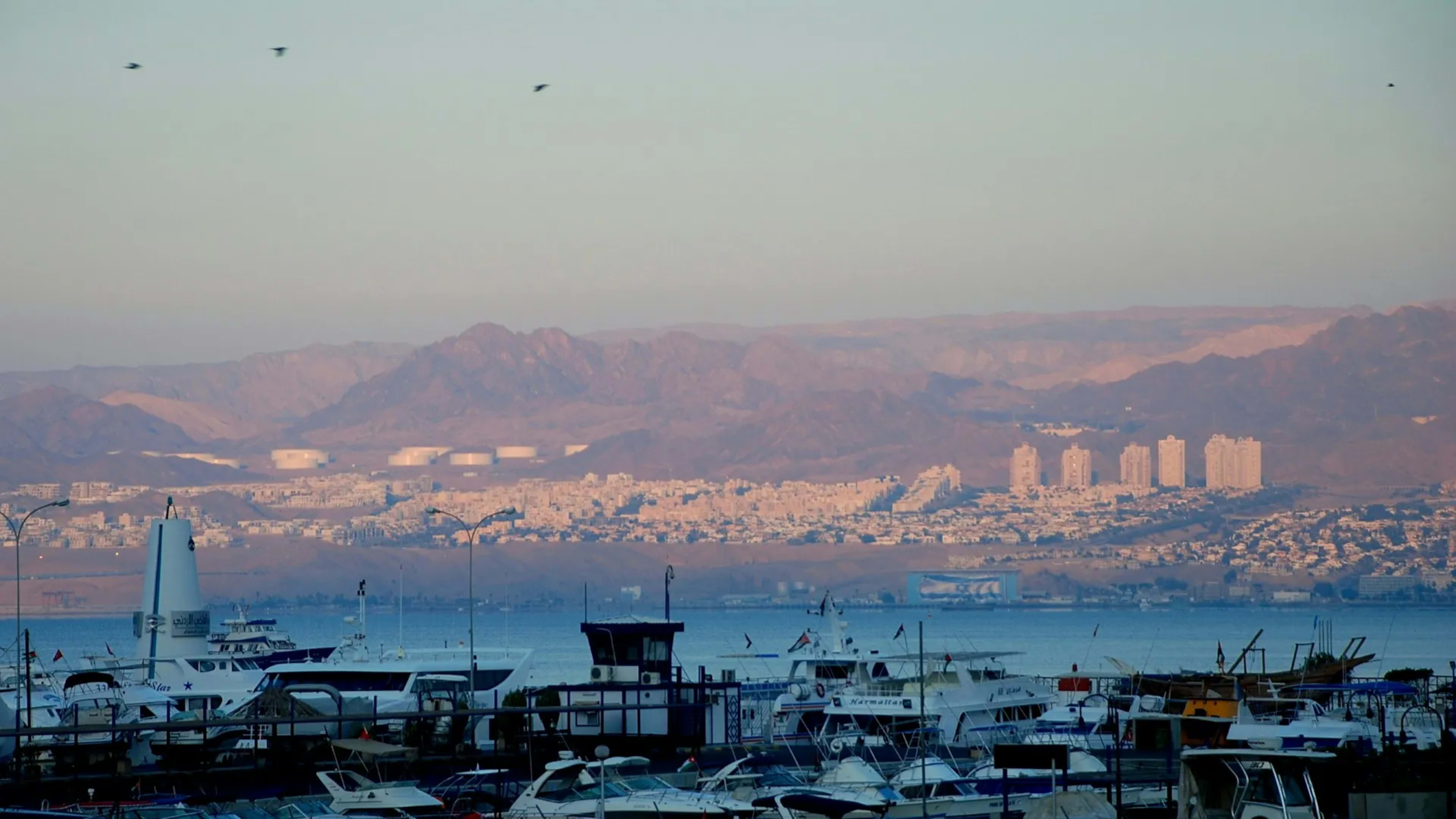Location & Transportation
When you arrive at Aqaba’s port, you won’t be stepping off onto a bustling boardwalk—instead, the ship’s coach will shuttle you to a convenient car park in town. This short 4 km ride is your first taste of Aqaba’s relaxed pace and beautiful coastal vibes. The port is not only famous for its excellent diving and snorkeling in the crystal-clear waters of the Red Sea but also serves as an ideal starting point for excursions to Petra and the Dead Sea region.
Local taxis and minibus rentals are readily available. For instance, a minibus ride from Petra takes about 2 hours, while a short taxi ride within the city typically costs around 2 JD. Just remember to clarify fares in advance!
Nearby Lodging
Aqaba has a range of accommodations to suit every budget. You’ll find several hotels and resorts along the Corniche where you can enjoy stunning views of the Red Sea. Popular options include luxury spots like the Kempinski Hotel Aqaba as well as more modest, budget-friendly choices—all perfect for unwinding after a day of adventure.
Nearest Airport
King Hussein International Airport is just a short drive from Aqaba. This small, efficient airport connects the city with regional and international destinations. Taxis and local buses make it easy to travel between the airport and town.
Sightseeing
Aqaba is a blend of marine beauty and intriguing history. While its clear, calm waters are perfect for diving, snorkeling, windsurfing, and even glass-bottom boat excursions to admire the vibrant coral reefs, there’s plenty to see on land too:
- Aqaba Fort: Originally dating back to the 14th century—with significant rebuilds over time—this historic fort offers a glimpse into the region’s storied past.
- Marine Sciences Center Aquarium: Located on the Corniche, this aquarium showcases a variety of exotic marine life for those moments when you prefer to stay dry.
- Water sports also abound, making Aqaba a lively spot for both adventure-seekers and relaxation enthusiasts alike.
Tours & Excursions
Aqaba is the ideal jumping-off point for exploring Jordan’s most famous landmarks:
- Petra: No visit to Jordan is complete without seeing Petra. This ancient Nabatean city, carved into solid rock over centuries, is easily reached by taxi or a guided minibus tour. Don’t miss the iconic Treasury (al Khazneh) and the Monastery (al-Deir).
- Wadi Rum: Known as the Valley of the Moon, Wadi Rum offers breathtaking desert landscapes. Whether you explore on foot, by camel, or 4x4 jeep, a tour here promises an unforgettable experience.
- Underwater Adventures: Local diving centers cater to beginners and experienced divers alike. You can join guided scuba tours, rent gear for a self-guided adventure, or take a glass-bottom boat trip to admire the coral formations just below the surface.
It‘s a good idea to compare shore excursion costs between what your cruise line offers and options like Viator and GetYourGuide. They often provide lower prices and include customer reviews and ratings to help you choose the best option. They may also offer more more flexible cancellation or rescheduling policies than those available through your cruise line. However, while booking independently might give you more variety and potentially better rates, be mindful of your schedule - cruise line excursions are typically coordinated to match your ship‘s schedule with guaranteed pick-up and drop-off times.
There is also a great resource for finding local guides at Tours by Locals. Tours by Locals connects you with local guides who can help you plan a private personal tour, guide you, and get you back to your ship on time. You can also check out Rome2Rio for local transportation options. It is a great resource for finding how to get from one place to another, including public transportation, taxis, ferries, and more.
Shopping
Aqaba’s markets and shops offer unique treasures that reflect Jordan’s rich cultural heritage. You might find:
- Hebron glass and intricately carved mother-of-pearl boxes
- Pottery, backgammon sets, and embroidered tablecloths
- Jeweled rosaries, worry beads, and olive-wood nativity sets
- Leather hassocks along with a fine selection of brass, copper, gold, and silver jewelry (look for the small golden coffee pot—a beloved national symbol) These items make perfect souvenirs or gifts that carry a piece of Jordan back home.
Dining
The local dining scene in Aqaba is as vibrant as its underwater world. Enjoy fresh seafood by the seaside, or sample classic Jordanian dishes like flavorful mezze, mansaf, or freshly grilled meats. Many restaurants offer a blend of traditional recipes and modern twists. Whether you choose a cozy café along the Corniche or a well-known establishment in town, you’re in for a treat that highlights the warmth and hospitality of Jordanian cuisine.
Culture & Local Events
In Aqaba, local culture and daily life offer insights into a more relaxed pace:
- Currency & Payments: The local currency is the Jordanian Dinar (JOD). While some international chains may accept US dollars, change is typically given in JOD.
- Language & Communication: Arabic is the primary language, but many people working in tourism speak English, making it easier to ask for directions or recommendations.
- Local Timing: Aqaba follows a siesta schedule. Most shops and restaurants tend to close around 3 pm and reopen around 6 pm—a great time to enjoy a long lunch or simply relax.
- Local Events: Depending on the time of year, Aqaba hosts festivals and cultural gatherings that celebrate its seaside charm and Bedouin heritage. Be sure to check with local tourist offices for seasonal events and festivals.
- Safety & Awareness: Always negotiate taxi fares upfront (and clarify if quoted prices are per person or total) to avoid surprises later. Like any tourist destination, it’s wise to stay aware of your surroundings and secure your valuables.
